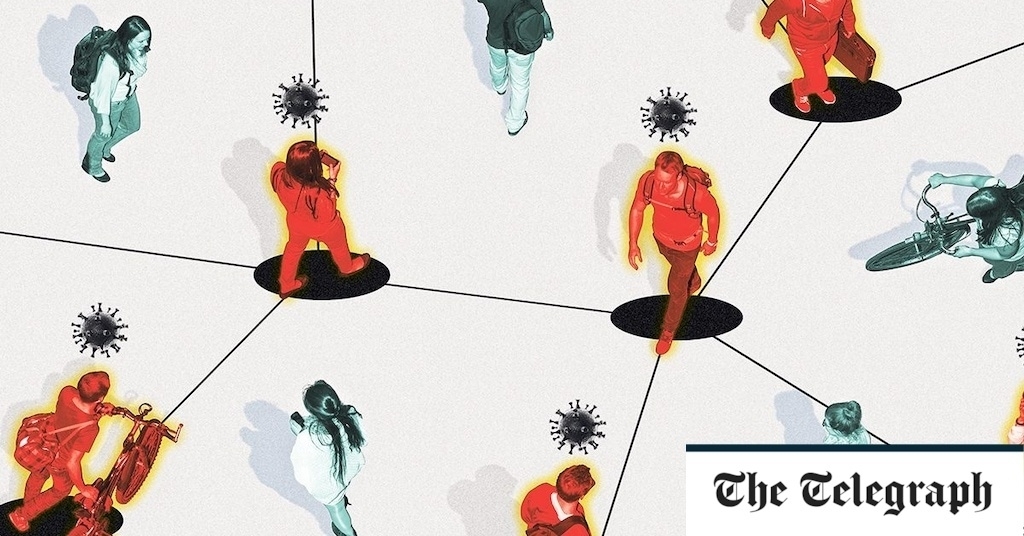2022
- We should accept the premise that people will not run their own servers by designing systems that can distribute trust without having to distribute infrastructure. This means architecture that anticipates and accepts the inevitable outcome of relatively centralized client/server relationships, but uses cryptography (rather than infrastructure) to distribute trust. One of the surprising things to me about web3, despite being built on “crypto,” is how little cryptography seems to be involved!
- We should try to reduce the burden of building software. At this point, software projects require an enormous amount of human effort. Even relatively simple apps require a group of people to sit in front of a computer for eight hours a day, every day, forever. This wasn’t always the case, and there was a time when 50 people working on a software project wasn’t considered a “small team.” As long as software requires such concerted energy and so much highly specialized human focus, I think it will have the tendency to serve the interests of the people sitting in that room every day rather than what we may consider our broader goals. I think changing our relationship to technology will probably require making software easier to create, but in my lifetime I’ve seen the opposite come to pass. Unfortunately, I think distributed systems have a tendency to exacerbate this trend by making things more complicated and more difficult, not less complicated and less difficult.
America, fascism, and the first, second, and third 'solutions'
Jason Kottke reminds us of Toni Morrison’s “Ten Steps Towards Fascism” from 1995. As an historian, it was this bit that he also quoted that jumped out at me, though.
Let us be reminded that before there is a final solution, there must be a first solution, a second one, even a third. The move toward a final solution is not a jump. It takes one step, then another, then another.To outsiders, Americans at this point seem like slowly-boiled frogs on their way to a fascist stew. Canadians seemingly understand the threat.
It’s terrifying when you think about it too much. (Most people in a position to do anything about it seemingly aren’t thinking about it…)
Persistent Practices and Pragmatism
I think Albert Wenger has discovered, however obliquely, Pragmatism. Once you realise that the correspondence theory of truth is nonsense, and that it makes more sense to think about truth as being “good in the way of belief” the world starts making a lot more sense…
Yoga works. Meditation works. Conscious breathing works. By “works” I mean that these practices have positive effects for people who observe them. They can help build and retain strength and flexibility of both body and mind. The fact that they work shouldn’t be entirely surprising, given that these practices have been developed over thousands of years through trial and error by millions of people. The persistence of these practices by itself provides devidence of their effectiveness.Source: A Short Note on Persistent Practices | ContinuationsBut does that mean the theories frequently cited to explain these practices are also valid? Do chakras and energy flows exist? I don’t want to rule this out – there have been various attempts to map chakras to the nervous and endocrine systems – but I think it is much more likely that these are pre-scientific explanations not unlike the phlogiston theory of combustion. I will refer to these as “internal theories,” meaning the theories that are generally associated with the practices historically.
Meetings and work theatre
The way that you do something is almost as important as what you do. However, I’ve definitely noticed that, during the pandemic as people get used to working remotely (as I’ve done for a decade now) there’s definitely been some, let’s say, ‘theatre’ added to it all.
Meetings, the office’s answer to the theatre, have proliferated. They are harder to avoid now that invitations must be responded to and diaries are public. Even if you don’t say anything, cameras make meetings into a miming performance: an attentive expression and occasional nodding now count as a form of work. The chat function is a new way to project yourself. Satya Nadella, the boss of Microsoft, says that comments in chat help him to meet colleagues he would not otherwise hear from. Maybe so, but that is an irresistible incentive to pose questions that do not need answering and offer observations that are not worth making.Source: The rise of performative work | The EconomistShared documents and messaging channels are also playgrounds of performativity. Colleagues can leave public comments in documents, and in the process notify their authors that something approximating work has been done. They can start new channels and invite anyone in; when no one uses them, they can archive them again and appear efficient. By assigning tasks to people or tagging them in a conversation, they can cast long shadows of faux-industriousness. It is telling that one recent research study found that members of high-performing teams are more likely to speak to each other on the phone, the very opposite of public communication.
Performative celebration is another hallmark of the pandemic. Once one person has reacted to a message with a clapping emoji, others are likely to join in until a virtual ovation is under way. At least emojis are fun. The arrival of a round-robin email announcing a promotion is as welcome as a rifle shot in an avalanche zone. Someone responds with congratulations, and then another recipient adds their own well wishes. As more people pile in, pressure builds on the non-responders to reply as well. Within minutes colleagues are telling someone they have never met in person how richly they deserve their new job.
Vaccine Hesitancy as part of a Plague Anthology
I’m not sure who’s behind this website, but it looks good. I appreciated the historical context behind vaccine hesitancy in cultures other than my own provided in the most recent post.
Anti-vaxxers adjacent to conspiracy theorists are nuts, but there’s definitely a communications angle to ensuring the effective roll-out of life-saving vaccines.
In Egypt, around 1800, there are reports of 60 000 deaths each year. The Ottoman ruler, Muhammad Ali Pasha, began in 1819 to institute a plan for general vaccinations and the logical people to carry this out were the barber-surgeons, known and trusted by the locals. While the Bedouin had long been enthusiastic about protecting their children in this way, the fellahin (peasantry) was reluctant, largely because they did not trust the government and thought it was a way of “marking” their children for conscription. Religious objections and concerns about mixing Muslim and Christian blood also played their part, and attempts to bribe the vaccinators were not uncommon.Source: Vaccine Hesitancy – Egypt 1866 | Plague AnthologyAfter the serious epidemic of 1836, official efforts intensified, with barber-vaccinators being trained and records kept. Gradually, the message got through and by 1850, the decline in child mortality was affecting the population statistics. The following anecdote, describes a perhaps surprising pocket of vaccine hesitancy.
Let's Settle This
This is good fun and, in fact, Laura and I used it to structure the upcoming Season 3 trailer for our podcast.
It's time to settle the endless internet debates.Source: Let's Settle This
Signal's CEO on 'web3'
My first response to most new technological things is usually “cool, I wonder how I/we could use that?” With so-called ‘web3’, though, I’ve kind of thought it was bullshit.
This post by Moxie Marlinspike, CEO of Signal, goes a step forward and includes opinions by someone who actually knows what they’re talking about.
I’m not sure what I think about the bit quoted below about not distributing infrastructure? In Marxist terms, it seems like not distributing or providing ownership of the means of production?
If we do want to change our relationship to technology, I think we’d have to do it intentionally. My basic thoughts are roughly:Source: Moxie Marlinspike >> Blog >> My first impressions of web3
Update: Moxie Marlinspike has announced he’s stepping down as Signal CEO.
Pessimism of the intellect, optimism of the will.
Someone I once knew well used to cite Gramsci’s famous quotation: “Pessimism of the intellect, optimism of the will.” I’m having to channel that as I look forward to 2022.
Here’s the well-informed writer Charlie Stross on the ways he sees things panning out.
Climate: we're boned. Quite possibly the Antarctic ice shelves will be destablized decades ahead of schedule, leading to gradual but inexorable sea levels rising around the world. This may paradoxically trigger an economic boom in construction—both of coastal defenses and of new inland waterways and ports. But the dismal prospect is that we may begin experiencing so many heat emergencies that we destabilize agriculture. The C3 photosynthesis pathway doesn't work at temperatures over 40 degrees celsius. The C4 pathway is a bit more robust, but not as many crops make use of it. Genetic engineering of hardy, thermotolerant cultivars may buy us some time, but it's not going to help if events like the recent Colorado wildfires become common.Source: Oh, 2022! | Charlie’s DiaryPolitics: we’re boned there, too. Frightened people are cautious people, and they don’t like taking in refugees. We currently see a wave of extreme right-wing demagogues in power in various nations, and increasingly harsh immigration laws all round. I can’t help thinking that this is the ruling kleptocracy battening down the hatches and preparing to fend off the inevitable mass migrations they expect when changing sea levels inundate low-lying coastal nations like Bangladesh. The klept built their wealth on iron and coal, then oil: they invested in real estate, inflated asset bubble after asset bubble, drove real estate prices and job security out of reach of anyone aged under 50, and now they’d like to lock in their status by freezing social mobility. The result is a grim dystopia for the young—and by “young” I mean anyone who isn’t aged, or born with a trust fund—and denial of the changing climate is a touchstone. The propaganda of the Koch network and the Mercer soft money has corrupted political discourse in the US, and increasingly the west in general. Australia and the UK have their own turbulent billionaires manipulating the political process.
Laptops aren't what they used to be
This guy went back to using a Lenovo ThinkPad T430 and explains why in this post. Over Christmas, I replaced some of the cosmetic parts of my X220, which is also from 2012.
It’s amazing how usable it still is, and I actively prefer the keyboard over the more modern ones.
I’ve been using this setup for over a month now, and it has been surprisingly adequate. Yes, opening Java projects in IntelliJ will make things slow, and to record my desktop with OBS and acceptable performance, I had to drop my screen resolution to 720p. I can’t expect everything to work super well on this machine, but for a computer that’s released almost 10 years ago, it’s still holding up well.Source: Why I went back to using a ThinkPad from 2012I’d like to thank Intel here for making this possible. The CPU innovation stagnation between 2012-2017 has resulted in 4 cores still being an acceptable low-end CPU in early 2022. Without this, my laptop would likely be obsolete by now.
Somebody please tell the travel industry there's a climate emergency
Utter madness.
German giant Lufthansa said it would have to fly an additional 18,000 “unnecessary” flights through the winter to hold on to landing slots. Even if the holidays brought a big increase in passengers — marked by thousands of flight cancellations that left travelers stranded — the rest of the winter period could be slow as omicron surges worldwide.Source: Near-empty flights crisscross Europe to secure landing slots | AP NewsLanding and departure slots for popular routes in the biggest airports are an extremely precious commodity in the industry, and to keep them, airlines have to guarantee a high percentage of flights. It is why loss-making flights have to be maintained to ensure companies keep their slots.
It was an accepted practice despite the pollution concerns, but the pandemic slump in flying put that in question. Normally, airlines had to use 80% of their given slots to preserve their rights, but the EU has cut that to 50% to ensure as few empty or near-empty planes crisscross the sky as possible.
Covid immunity and medical breakthroughs
It seems like we’re learning a lot in a very short space of time about viruses and immunity. Happily, this might lead to breakthroughs in all sorts of areas.
We tend to think of immunity as something of an absolute – either we’re immune to a virus, or we’re not. But that hides a world of complications, says Danny Altmann, professor of medicine and immunology at Imperial College London. The genes that control our immunity are among the most diverse in the human body, he says, differing hugely from person to person.Source: Why some people keep getting Covid – and others never at all | The Telegraph[…]
But what explains this natural immunity? The most likely theory is that these people’s immune systems have already been exposed to similar viruses, years or decades earlier. Sars-Cov-2 is one of a family of seven human coronaviruses, most of which cause the common cold. All of these viruses look fairly similar. When your T-cells learn how to fight one, they get better at fighting them all, it is thought.
Another, less well-researched answer lies in our genes. Some people might simply be born with an immunity to certain viruses, scientists suspect.
[…]
If it turns out that some people are indeed naturally immune to Covid, it’s wonderful news for them. But it might also help the rest of us, speeding up development of a pan-coronavirus vaccine capable of defeating any variant. The current generation of Covid vaccines were all designed to target the spike protein, on the virus’s outer edge. But the spike protein also changes frequently, each time the virus mutates. This means vaccines are slightly less effective against each new variant.
But natural immunity appears to work differently. In the UCL trial, researchers looked carefully at the blood of those volunteers who seemed to have pre-existing immunity to the virus. Rather than targeting the spike protein, their T-cells were targeting proteins at the centre of the virus. These proteins are much less likely to change from mutation to mutation. In fact, they tend to be found in most coronaviruses, not just Sars-Cov-2. If a vaccine could be built to target these inner proteins, it might just be able to defeat all variants – as well as a range of other coronaviruses.
Jam tomorrow
The key to success traditionally has been to play the long game. If the system is rigged in your favour, that works. If it's not, then it's always "jam tomorrow".

Where does the idea that we can achieve, or should even be aiming for, endless productivity come from? Arguably we’ve been barrelling towards this conclusion for as long as capitalism has existed, but the technological advances of the past few decades have further eroded the barriers around work that stop it seeping into every aspect of our lives. There is a widespread cultural fetishisation of productivity, with overwork framed as a virtue by employers desperate to find ways to motivate a workforce for whom the traditional rewards – a decent salary, pension, job security – often no longer apply.Source: This year, I stopped being productive. Why is it so hard to come to terms with that? | The Guardian






